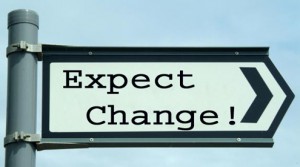 THUNDER BAY – As a youth, my Saturday mornings started early. I would get up and head out to go for a hike. It is a habit that started in Winnipeg, and continued when we moved to Thunder Bay. Enjoying the quiet mornings, I would explore. Even on the coldest winter days in Winnipeg, I would be off, sometimes with our family dog, sometimes just by myself. An appreciation of the outdoors has been engrained in me since I was a child. In many ways, those experiences grounded me in an appreciation of nature, and in a respect for humanity.
THUNDER BAY – As a youth, my Saturday mornings started early. I would get up and head out to go for a hike. It is a habit that started in Winnipeg, and continued when we moved to Thunder Bay. Enjoying the quiet mornings, I would explore. Even on the coldest winter days in Winnipeg, I would be off, sometimes with our family dog, sometimes just by myself. An appreciation of the outdoors has been engrained in me since I was a child. In many ways, those experiences grounded me in an appreciation of nature, and in a respect for humanity.
Today, across Northwestern Ontario, and here in Thunder Bay there is a lot of discussion on how can we engage young people into a life where they make solid and positive choices.
In conversation with Stella Koostachin she said, in reference to Aboriginal youth, that what is needed is a “School of Nature Camp. The youth need to go back to basics, learn hunting, trapping and fishing, and using natures’ gifts to build things…like canoes, snowshoes, cradleboards, pots and utensils, sleds, and start dog sledding again”.
She added, “I think they should do that with kids who get in trouble… take them back to the basics of the land. They should do that with both, those in trouble and not in trouble as intervention for those not in trouble yet and for peer-to-peer support”.
Often it seems, today youth are left to fend for themselves more than ever before. Society forms committees of experts to examine the situation, and figure out what to do.
Perhaps the simple truth is that as human beings, we have come from a relationship with the land, and with nature. We come from having relationships with our family and with our community. Those have been the way, regardless of what culture we are from. Today, many of those traditional links have been broken. People feel a disconnect from the land, and a disconnect from nature.
Broken homes, leave young people without the balance of two parents. Broken families result in a disconnect from grandparents who are often a stable base of wisdom and knowledge.
Maybe the solutions don’t need committees stacked with PHDs, and White Papers. Maybe the solution can be found in getting back to our basic humanity?
Today, when one examines the direction that some would take us, it appears that the ideas are more toward continuing on the paths society is currently following. We are not likely to see positive change on that path, but only more of what we have seen over the past twenty to forty years.
Stella’s suggestion that First Nations organizations “ought to build camps for youth to go anytime they want, with no alcohol or drugs” might be a way forward that helps build a connection between young people and their heritage.
When you consider that one of the continually repeated issues raised from the Residential Schools are that young people were “ripped from their homes, culture and families” maybe building bridges to engage today’s youth with their traditional ways is a far better, more positive and effective use of time and effort than what we are doing?
Stella offered, in closing, “This is the process for self-governance, where funding is not necessary, only LOVE. These young people and adults need to know they are loved despite their actions, they need to understand it is their behavior that is intolerable, and because of love, they need to change.
When one considers that the federal government is currently looking to drastically expand our federal prison system to allow an additional 4000 inmates to be incarcerated. When the average annual cost is $200,000 per inmate, maybe it is time some of that massive annual expenditure were actually invested in building a society where we encourage young people to make good decisions?
Right now it appears we are leaving those most at risk to fend for themselves, not funding the needed safety networks, and not providing youth with the tools they need to become valued members of society.
We should all be asking why?
James Murray
